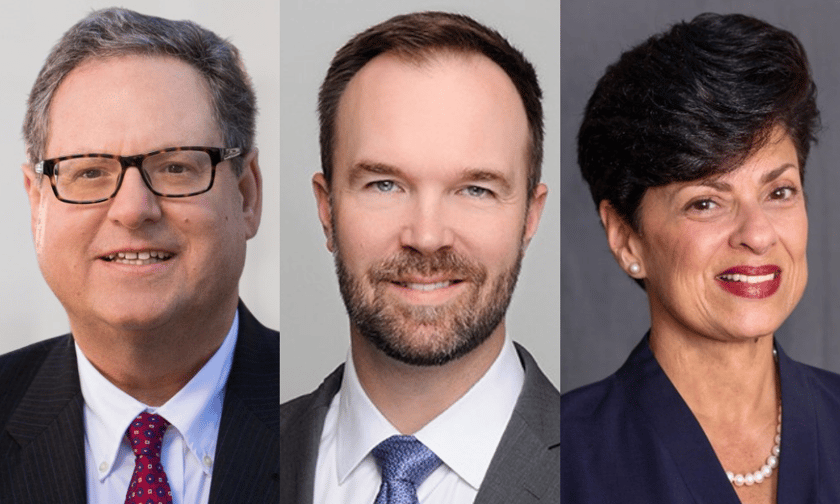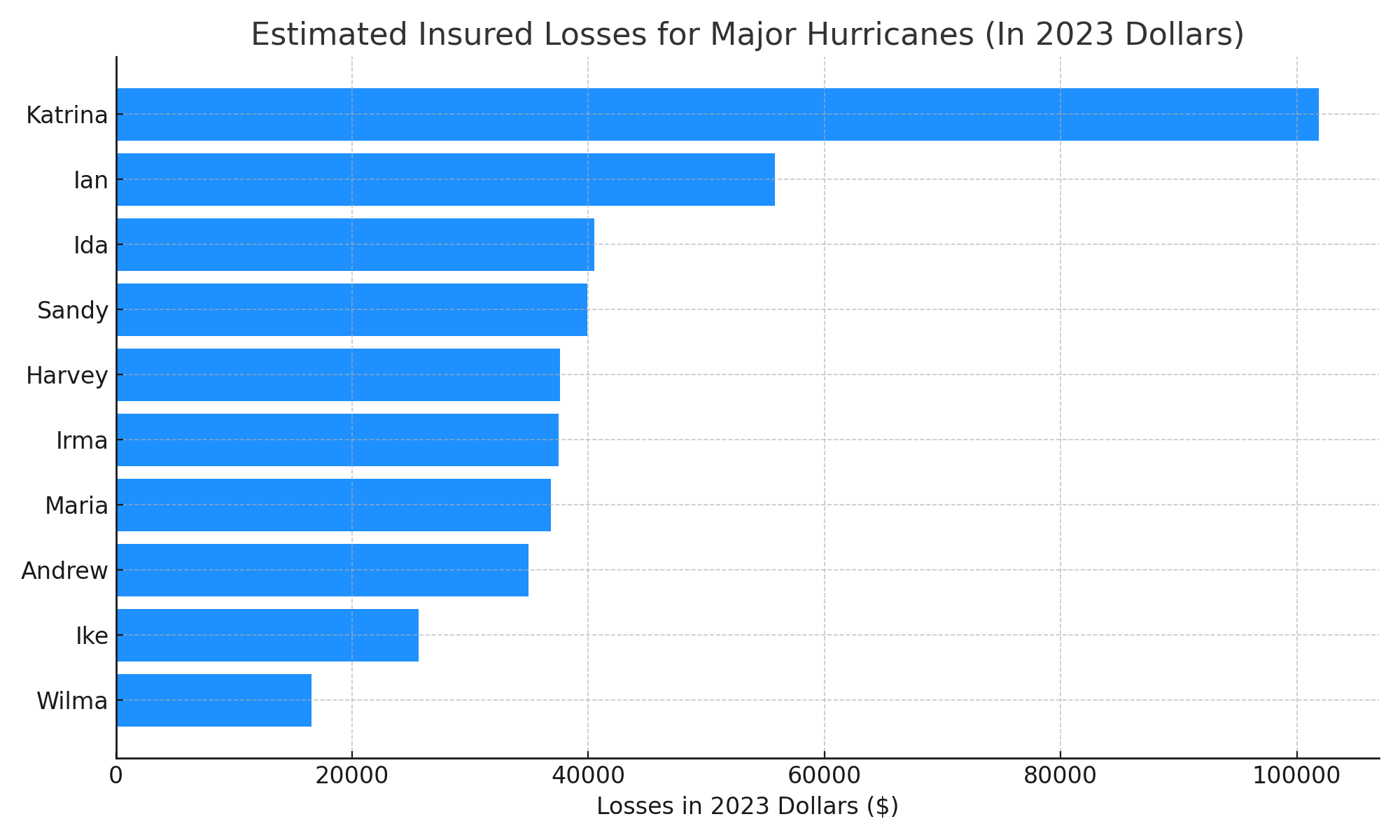

Storm clouds are likely to gather in the Atlantic more often than usual this year, which could bump up reinsurance rates in Florida but whether that sends a lightening bolt through them or not depends on several things, experts say.
A widely followed forecast by Colorado State University predicts “an extremely active Atlantic hurricane season.” Released earlier this month, the study estimates 23 named storms compared to an average of 14.4 from 1991-2020. It also says to expect five major hurricanes compared to an average of 3.2.
The season begins June 1, which is also the same date for reinsurance renewals in Florida. The forecast has caused much stir, but it isn’t clear how big an impact it will have on reinsurance rates.
“It would not surprise us if there are increases at the June 1 renewal date,” said Mark Friedlander (pictured above, left), director of corporate communications at the Insurance Information Institute. “Any increase in the cost of reinsurance…has a downwind effect in terms of [insurance] rates in the future.”
It’s not clear how the hurricane forecast is affecting reinsurers’ internal decisions about renewal rates. Munich Re, for instance, does its own hurricane forecast and declined to comment on the Colorado State study or upcoming renewals.
Reinsurers seem to be taking in stride the prospect of a busy hurricane season.
“I have yet to have a reinsurer tell me that they would...provide less reinsurance in Florida as a result of the forecasts that are coming out,” said Adam Schwebach (pictured above, center), executive vice president and Tampa branch manager at Gallagher Re. “Most reinsurers that have historically focused on Florida would be comfortable taking risk regardless of the forecast. That’s something that’s built into their pricing models.”
The hurricane forecast won’t necessarily affect renewal rates that will be offered in June, said Rich Coyle, US commercial director for FloodFlash, a parametric insurer that specializes in flood risk.
“Any change in rates and general terms won’t happen because of hurricane forecasts,” Coyle said. “It’s probably already priced in at this point.”
But if catastrophic storms hit Florida this season, the hypothetical of a forecast becomes the reality of devastating losses on the ground, which could send future reinsurance rates up sharply.
“That will have an impact next year,” Coyle said.
Mother Nature can be fickle even after a storm has developed on the open ocean. No-one knows for sure which way it will turn. It could head far out to sea or gain strength and slam into a heavily populated area. Insurance costs hinge on the track it takes.
“It’s not how many storms might develop, at the end of the day, it’s how many storms make landfall,” Schwebach said.
Reinsurance in Florida is affected by its geography. Three hurricanes have hit the state in the previous two years – Ian and Nicole in 2022 and Idalia in 2023. Reinsurance rates soared between 40% and 100% last year, compared to 30% for the rest of the country.
“Florida is always going to be above the norm because of higher probability of landfall than any other state,” Friedlander said.
Reinsurers may be sanguine about the hurricane forecast, but it will have Florida citizens and insurance professionals watching the sky warily.
The prediction of churning seas and high winds out in the Atlantic comes just as many believe the state is beginning to turn the corner on its hard insurance market.
“Everything is starting to move in a positive way,” said Dulce Suarez-Resnick (pictured above, right), vice president at Acentria Insurance in Miami. The Colorado State forecast “was like a bucket of cold water. We’re just one storm away from everyone saying all bets are off. It all depends on how Mother Nature treats us.”

